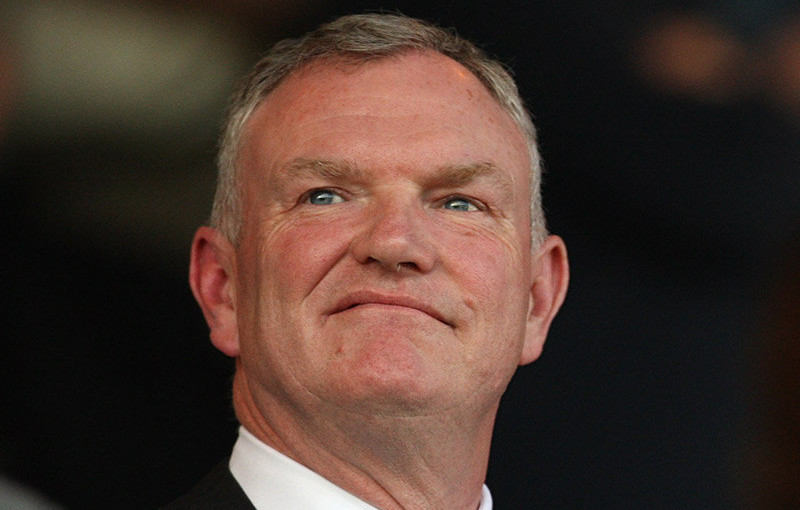By Andrew Warshaw
April 26 – The second tier of English football is adopting UEFA’s break-even model designed to stem haemorrhaging losses and stop clubs spending beyond their means.
Under the groundbreaking plans, Championship clubs who make losses of more than £6 million ($10 million/€7 million) could eventually be fined millions of pounds under a so-called Fair Play Tax – or even placed under a transfer embargo from the 2014-2015 season.
Crucially, any proceeds from clubs who break the rules will be distributed equally among those who comply with the regulations.
Three of the 24 Championship clubs voted against the new Financial Fair Play rules that mirror the UEFA system and limit “sugar daddy” investment from profligate owners.
Football League chairman Greg Clarke (pictured above), announcing the new measures, refused to identify the three rogue clubs.
Owners will be allowed to invest £6 million ($9 million/€7 million) next season, £5 million ($8 million/€6 million) the year after that, then £3 million ($5 million/€4 million) in the 2014-2015 season.
From 2015-2016, clubs will be allowed to make a £2 million ($3 million/€2 million) operating loss, as well accept a £3 million ($5 million/€4 million) investment from an owner – allowing for a £5 million ($8 million/€6 million) overall loss.
The new rules have been introduced to stop Championship clubs massively over-spending while chasing the dream of top-flight football, only to discover they cannot sustain it.
Just like under UEFA’s scheme, youth investment and stadium-building will be exempt, while Leagues One and Two will continue to limit spending on a wages-to-turnover ratio, the closest thing in English football to a salary cap.
The regulations will be introduced next season on a phased-in basis, with sanctions for non-compliance introduced in the 2014-2015 season.

Portsmouth, who are being relegated from the Championship, are still locked in administration and Clarke predicts several clubs will go out of business if something is not done soon to curb financial irresponsibility and keep the clubs alive.
“On the pitch we have three exciting, competitive divisions with crowds at their highest levels for 50 years,” said Clarke.
“But that success isn’t necessarily being reflected on our clubs’ balance sheets.
“Club losses are increasing and club debt is increasing and we have to remedy that situation.
“For the first time, all 72 Football League clubs have agreed to take concerted action towards controlling their financial destiny.
“These things are never unanimous and a couple of the clubs would rather not have constraints on how much money they can spend.
“We are not against foreign ownership but I would hope this could lead to a return to the days when local communities could own the clubs rather than rely on offshore benefactors.
“This is not a solution to all our problems but it’s a step on the road that will allow our clubs to be financially sustainable.”
Contact the writer of this story at zib.l1744116876labto1744116876ofdlr1744116876owedi1744116876sni@w1744116876ahsra1744116876w.wer1744116876dna1744116876

